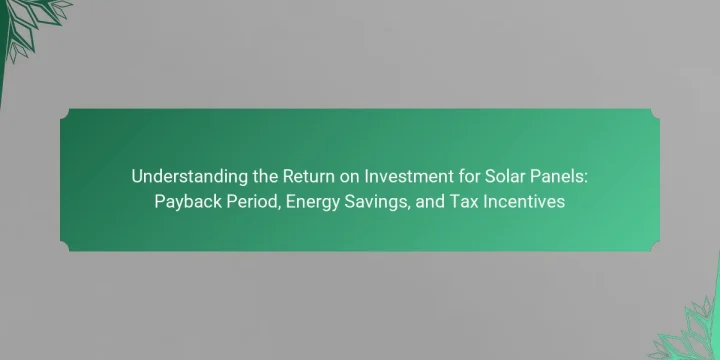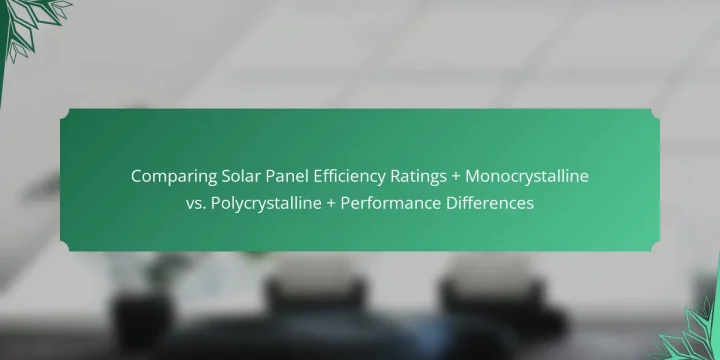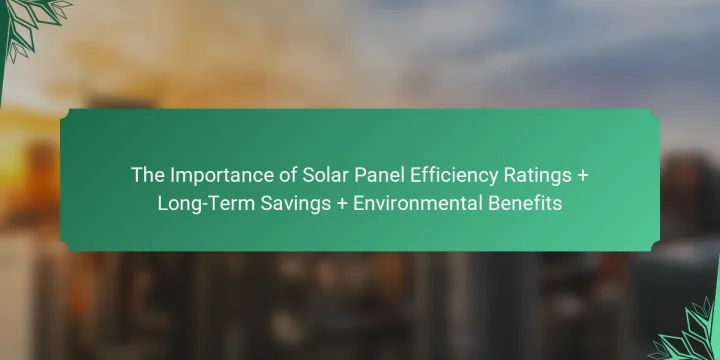
What is the Return on Investment for Solar Panels? The Return on Investment (ROI) for solar panels typically ranges from 10% to 30% per year. This percentage depends on various factors such as installation costs, energy savings, and local incentives. A common payback period for residential solar systems is between 5 to 10 years. During this time, homeowners can save on their electricity bills, often amounting to thousands of dollars. Federal tax credits can further enhance ROI by reducing upfront costs. According to the Solar Energy Industries Association, the average ROI for solar investments has increased due to declining installation costs and rising electricity prices. This trend supports the financial viability of solar energy solutions. How is the payback period calculated for solar panel investments? The payback period for solar…








